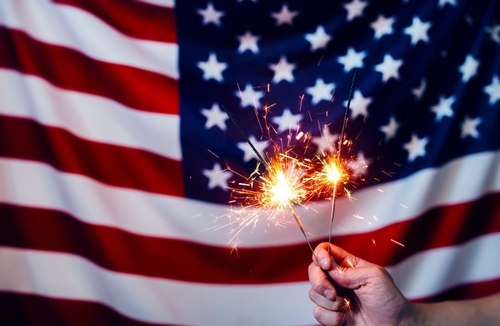Independence Day, more commonly known as the Fourth of July, is a hallmark celebration in the United States. It’s a day when Americans reflect on their history, honor the fight for freedom, and celebrate as a united people. For many, it’s more than a day off work or a barbecue in the backyard; it’s a time to acknowledge the ideals of liberty and independence that remain central to the nation’s identity.
This article explores the significance of Independence Day, its historical roots, how Americans celebrate, and what this day represents to the country. Whether you’ve been celebrating this day for decades or are a newcomer to the traditions, this guide will give you a deeper appreciation of the Fourth of July and how it unites an entire nation.
The History of Independence Day
The Birth of a Nation
Independence Day traces its roots back to July 4, 1776, when the Declaration of Independence was adopted by the Continental Congress. This iconic document, primarily drafted by Thomas Jefferson, declared the thirteen American colonies free from British rule. The Declaration asserted principles of equality, self-governance, and inalienable rights, igniting the values that form the foundation of modern America.
The struggle for independence wasn’t an easy path. Battles of the Revolutionary War continued long after the declaration, but this pivotal moment served as an inspiration for the colonies and future generations.
Why July 4th?
The process leading to July 4th was a deliberate one. On July 2, 1776, the Continental Congress voted to sever ties with Britain. Two days later, on July 4, the final wording of the Declaration of Independence was ratified and distributed. The date became synonymous with freedom and has been celebrated annually since then. Interestingly, two of the nation’s founding fathers, Thomas Jefferson and John Adams, died on July 4, 1826, exactly 50 years after the birth of the United States.
Fun fact: Independence Day wasn’t recognized as a federal holiday until 1870!
Modern-Day Celebrations
Fireworks and Festivities
Independence Day is nothing short of a spectacle. From small neighborhoods to major cities, fireworks light up the skies in vibrant displays. Fireworks symbolize the “rockets’ red glare” from the national anthem and have become a key part of the Fourth of July tradition.
Parades featuring bands, floats, and uniformed servicemen and servicewomen are also a common sight. These events bring communities together, creating a sense of pride and togetherness.
Food and Gatherings
Barbecues and picnics are another hallmark of the day. Friends, families, and communities gather for feasts that often include hotdogs, hamburgers, ribs, and plenty of classic American dishes. Red, white, and blue desserts often make an appearance, alongside seasonal fruits like watermelon.
For those near water, activities like boating, swimming, or simply enjoying the beach often form part of the holiday fun.
Honoring Patriotism
Beyond the fun and festivities, many Americans commemorate the day by reflecting on the sacrifices made by past generations. Ceremonies, historical reenactments, and flag-raising events honor the service members and founding ideals of the nation.
Why Independence Day Matters
While fireworks and food are undeniably fun, Independence Day is also a day of meaning and symbolism. It’s a reminder of the democratic principles that the country was built upon and the collective commitment to ensuring liberty and justice for all.
It’s a day to reflect on progress and areas for growth, particularly in ensuring equality and opportunity for every American. Independence Day serves as a unifying moment and a reminder that freedom and independence are causes worth striving for every single day.
FAQs
What is the importance of the Declaration of Independence?
The Declaration of Independence laid the groundwork for the United States as a free nation. It proclaimed the colonies’ freedom from British rule and articulated ideals of democracy, liberty, and equality.
How do people celebrate Independence Day outside the U.S.?
American expatriates and U.S. bases overseas often host activities like barbecues and fireworks. It’s also common for embassy events to include ceremonies and celebrations in honor of the holiday.
Why are fireworks associated with the Fourth of July?
Fireworks symbolize excitement and celebration, drawing inspiration from the phrase “rockets’ red glare” in the national anthem. This tradition has been a visual centerpiece since the first Independence Day celebrations.

